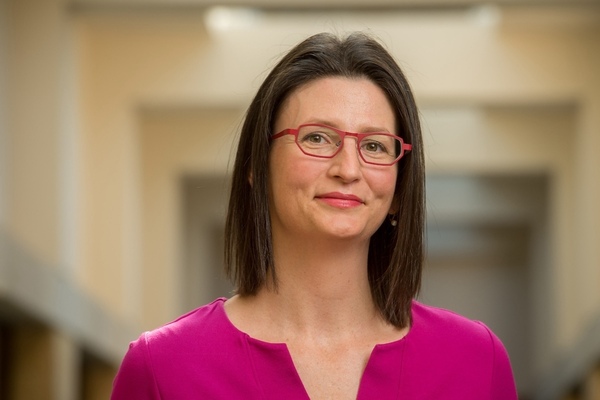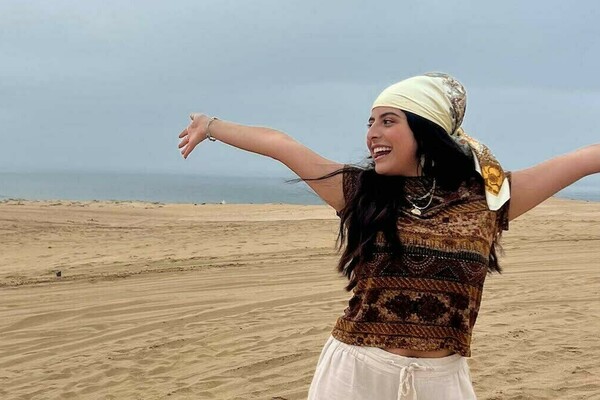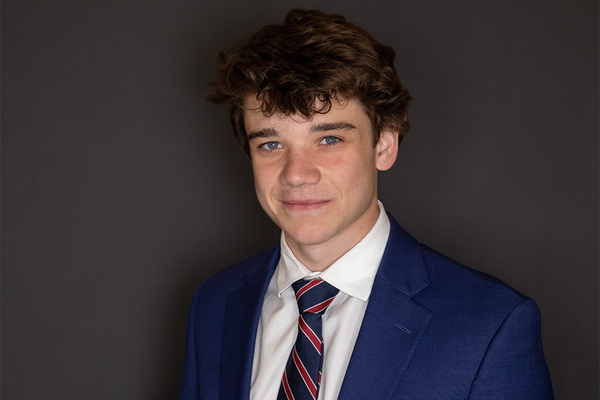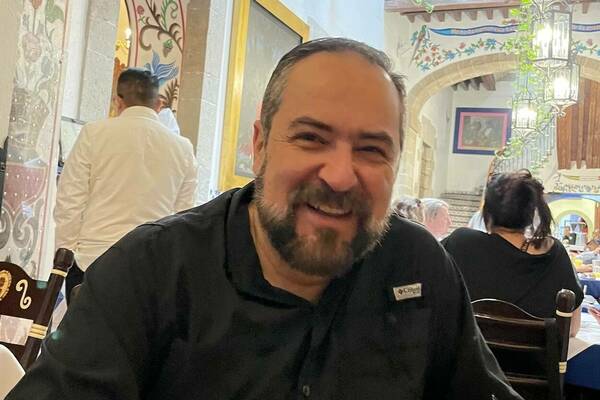


Arts & Letters has everything you need to prepare for success — no matter where you chart your course.
College is a once-in-a-lifetime opportunity to explore the world, learn more about it, and build skills and experiences that can send you anywhere after graduation.
No matter which languages and cultures you choose to study during your time at Notre Dame, by coming to South Bend, you’re unlocking a world of possibilities.
Accelerate your language skills and cultural competencies through programs and services offered by the Center for the Study of Languages and Cultures.
Whether you’re a graduate or undergraduate student, the Center offers opportunities for you enhance your classroom learning (peer tutoring, language tables, cultural events, and more), grants that fund eight weeks of study in another country (Summer Language Abroad), a program that shows the world you’ve engaged in cross-cultural learning (Globally Engaged Citizens program), and curricular programs that expand your understanding of the art and science of language.
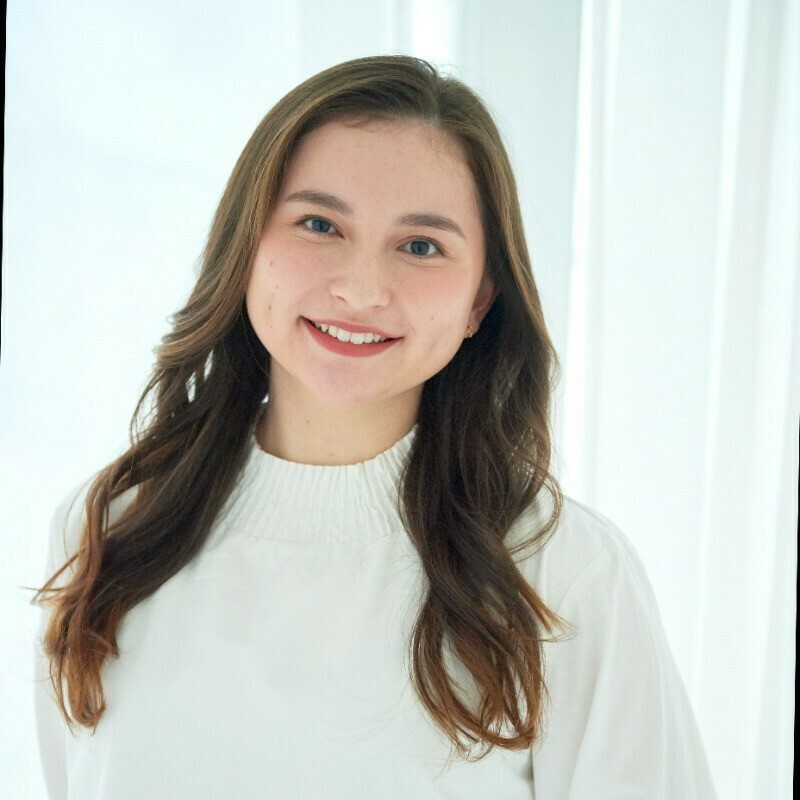
"Your time as an undergraduate is the perfect opportunity to study language, because in college, you’re creating a new identity for yourself. Language is so much intertwined with who we are, so by learning a new language, you are relearning yourself and how you think, and that shift is really crucial into actually creating a global perspective. It’s a vulnerable process, because no one is good at a language at first, but that discomfort creates a valuable opportunity for learning."
— Mariko Jurcsak
Greek and Roman Civilization and Japanese major

The questions Arts and Letters students ask take them around the world. Whether you’re consulting the Vatican Library, delving into an obscure South American archive, filming a documentary in Asia, or conducting ethnographic research in Africa, research funding is available from an array of University programs, centers, and institutes — including A&L’s Undergraduate Research Opportunity Program (UROP).
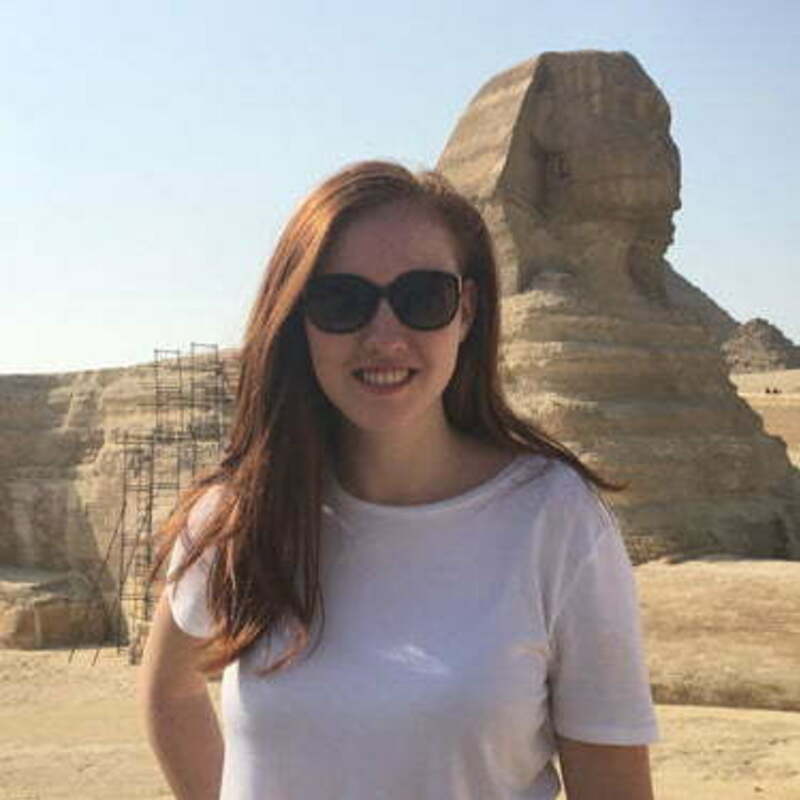
Erin Hayes ’18, political science and Arabic major
Refugee status determination legal advisor, St. Andrew’s Refugee Services
Digital and communication specialist, Education for Employment
Cairo, Egypt
"Studying Arabic gave me the confidence I needed to move to Cairo and delve into a world full of opportunities here. I use the language daily, whether greeting legal aid clients in Arabic, reading social media posts, or simply buying fruit from my favorite produce stall. People in Egypt are eager to let visitors practice language, and I am grateful that I arrived with a foundation with which to learn colloquial Egyptian Arabic."
Erin Hayes ’18, political science and Arabic major
Refugee status determination legal advisor, St. Andrew’s Refugee Services
Digital and communication specialist, Education for Employment
Cairo, Egypt
"Studying Arabic gave me the confidence I needed to move to Cairo and delve into a world full of opportunities here. I use the language daily, whether greeting legal aid clients in Arabic, reading social media posts, or simply buying fruit from my favorite produce stall. People in Egypt are eager to let visitors practice language, and I am grateful that I arrived with a foundation with which to learn colloquial Egyptian Arabic."
Emily Vincent ’18, anthropology and Chinese major
Yenching Scholar, Peking University
Beijing, China
"As an international student at Peking University, I use anthropology on a daily basis. Studying anthropology taught me how to dig deeper than the apparent cultural differences to find the underlying human experience that connects us all. It showed me the importance of evaluating situations from multiple cultural perspectives and the validity of viewpoints that may seem strange or foreign at face value.
Anthropology equipped me to ask better questions about myself and the world while preparing me to seek the answers through my own experiences."
Pete Freeman ’18, sociology and gender studies major
President, Youth Health Ghana
United Nations Youth Forum delegate
Innovation fellow, enFocus Inc.
"Sociology gives you an incredible background and a multitude of lenses to look through. What motivates humans, how different institutions impact the way society runs, group dynamics, or social movements, or social networks. You bring multiple different theoretical frameworks to bear on social problems.
Sociology has really allowed me to not only ask good focused questions about social problems but then when I get an answer, to be able to dissect that answer in a way that allows some kind of positive response."
Sophia Bevacqua ’17, art history major
Vatican Museums fellow, 2018-2020
Now: Graduate student, NYU Institute of Fine Arts
"I found art history to be naturally inseparable from my position in the Vatican Museums. I relied not only on the knowledge I acquired in my courses on the Italian Renaissance and the Baroque for expertise of the museums’ collections, but I also used the research skills I received in the major on a continual basis.
My job also required that I constantly propose answers to the same questions posed in my Art History courses regarding museums, the role they can play in today’s society, and how they should change to suit 21st-century visitors."
Sydney Porter ’20, political science and FTT major
Fulbright English Teaching Assistant
South Korea
"In my friend group in Korea, there were people from Australia, from Turkey, from London, and China. It was a great environment to be in because you got to learn so much about the world. Later, I focused my senior thesis on South Korea because I was interested in studying how national identity can be a divisive force within a country.
After going to Korea, I realized that I really wanted to gain proficiency in the language, and I knew I would have to go back to Korea to do that."

